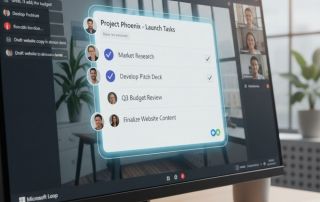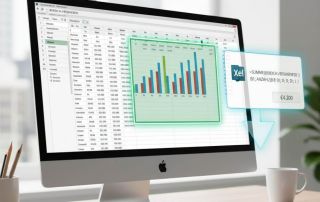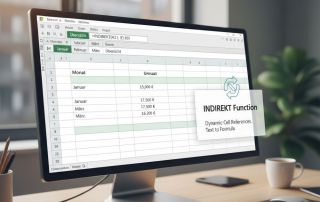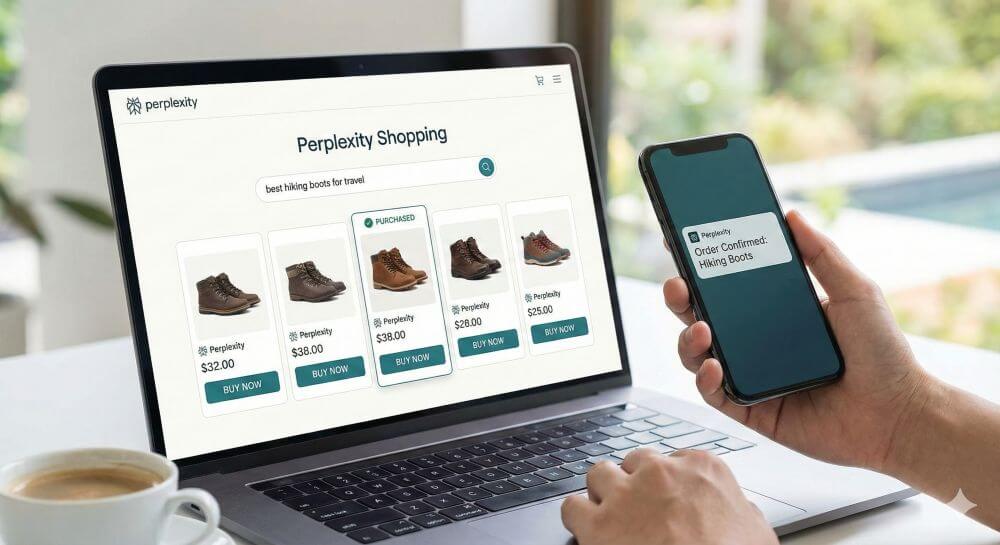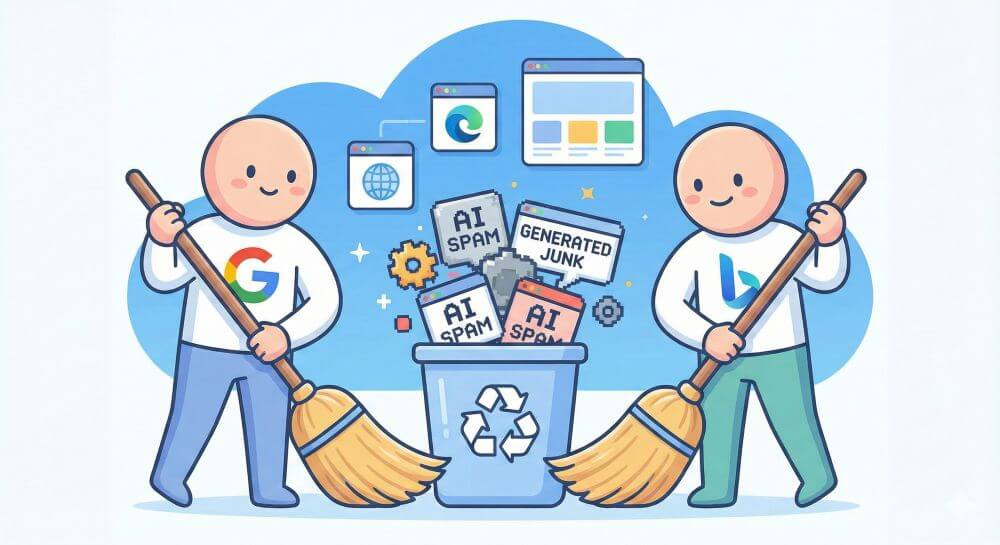IT skills for non-IT professionals: Your unfair advantage in the office
There are those meetings where the IT department takes over. Suddenly, terms like “API,” “backend,” “deployment,” or “cloud migration” are flying around the room. You nod politely, mentally checking out, hoping no one asks you a direct question.
This used to be okay. After all, you were responsible for marketing, sales, or HR, not tech.
Today, things are different. In the modern workplace, there are hardly any “non-IT jobs” left. Every office job is digital. Those who only passively use technology (“I click here because that’s how I was shown”) quickly fall behind. But those who understand it and use it to their advantage gain a massive competitive edge—an “unfair advantage.”
The good news: You don’t have to learn to code to be tech-savvy. It’s enough to master the right concepts and tools. Here are the four most important IT skills for non-IT professionals in 2025.

No-Code & Low-Code: Programming without a programming language
This is arguably the biggest lever for your personal efficiency. “No-code” tools allow you to build digital workflows by visually connecting building blocks instead of typing code.
The problem: You manually save invoice attachments from emails to a specific OneDrive folder every day. Annoying and time-consuming.
The IT solution (for non-IT people): You use a tool like Microsoft Power Automate (often included in your Office license) or Zapier. You create a simple rule: “IF an email with the subject ‘Invoice’ arrives, THEN save the attachment to folder X.”
Your advantage: You automate tedious routine tasks yourself, without having to wait for the overloaded IT department.
Data Literacy: Not just reading data, but understanding it
We’re drowning in data, but we’re thirsting for insights. “Data literacy” doesn’t mean you have to build complex statistical models. It means you’re not afraid of a large Excel spreadsheet and you ask the right questions.
What you need to be able to do:
- Understand where data comes from (Is it reliable?).
- Perform basic analyses (Pivot tables are your best friend here).
- Recognize when a graph is manipulated or misleading.
Why it’s important: Decisions are increasingly data-driven. If you can back up your proposals with solid data, you’ll have the upper hand in every meeting.
Cyber Security Awareness: Don’t be the security vulnerability
This might sound dry, but it’s vital for your career. A single wrong click on a well-crafted phishing email can cripple the entire company network. “I’m not a techie” is no longer an excuse.
What you need to know:
- How do I recognize modern phishing (e.g., fake emails from the “boss” that put pressure on me)?
- Why “password123” is also taboo for personal use (use password managers).
- What happens if I connect to public Wi-Fi in a café?
Your advantage: You’ll become a reliable asset to the company, not a liability.
Understanding “Tech-Speak”: The Interpretive Skill
You don’t need to know how to program an API (interface). But you do need to know what it does: It allows two different software programs to communicate with each other.
Understanding the basic concepts will help you communicate more effectively with IT colleagues or external service providers. You’ll be able to formulate requirements more clearly and better understand why some things take time or are technically challenging. This makes you the ideal project manager for digital projects—a highly sought-after role.
Conclusion: Curiosity beats prior knowledge
No one expects you to rewire the server room. But the modern workplace expects you to be comfortable with technology.
The key to IT skills for non-IT professionals is simple curiosity. The next time you encounter a technical problem, don’t immediately click away. Ask yourself: “How does this actually work, roughly?” This small shift in mindset is the first step from being a mere user to a digital creator.
Beliebte Beiträge
Warum dein Excel-Kurs Zeitverschwendung ist – was du wirklich lernen solltest!
Hand aufs Herz: Wann hast du zuletzt eine komplexe Excel-Formel ohne Googeln getippt? Eben. KI schreibt heute den Code für dich. Erfahre, warum klassische Excel-Trainings veraltet sind und welche 3 modernen Skills deinen Marktwert im Büro jetzt massiv steigern.
Microsoft Loop in Teams: The revolution of your notes?
What exactly are these Loop components in Microsoft Teams? We'll show you how these "living mini-documents" can accelerate your teamwork. From dynamic agendas to shared, real-time checklists – discover practical use cases for your everyday work.
Career booster 2026: These Microsoft Office skills will take you further!
A new year, new career opportunities! But which Office skills will really be in demand in 2026? "Skilled use" is no longer enough. We'll show you today's must-haves – like advanced Excel, using AI in the office, and relevant certifications for your resume.
Excel Tutorial: How to quickly and safely remove duplicates
Duplicate entries in your Excel lists? This distorts your data. Our tutorial shows you, using a practical example, how to clean up your data in seconds with the "Remove Duplicates" function – whether you want to delete identical rows or just values in a column.
Dynamic ranges in Excel: OFFSET function
The OFFSET function in Excel creates a flexible reference. Instead of fixing =SUM(B5:B7), the function finds the range itself, e.g., for the "last 3 months". Ideal for dynamic charts or dashboards that grow automatically.
Mastering the INDIRECT function in Excel
The INDIRECT function in Excel converts text into a real reference. Instead of manually typing =January!E10, use =INDIRECT(A2 & "!E10"), where A2 contains 'January'. This allows you to easily create dynamic summaries for multiple worksheets.


